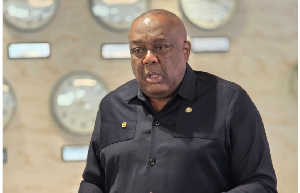The Ghana Health Service (GHS) has organised a three day meeting for Seasonal Malaria Chemoprevention (SMC) working groups to discuss important interventions that would aid in the fight against malaria.
SMC is the intermittent administration of full treatment courses of an antimalarial medicine during the malaria season to prevent malarial illness with the objective of maintaining therapeutic antimalarial drug concentrations in the blood throughout the period of greatest malarial risk.
The meeting, which brought together health professionals from various countries, seeks to discuss challenges and way forward with regards to SMC, its implementation, and find lasting solutions for malaria prevention, control and elimination.
Malaria has a devastating impact on individuals, communities and countries which creates strong economic burden on countries.
In Ghana, malaria continues to be the leading cause of outpatient attendance, even though significant gains have been achieved as a result of recent scale up of preventive and curative interventions.
It is the leading cause of mortality and morbidity in Ghana especially with children under the age of five, hence, several efforts have been put in place to control malaria in Ghana through strategic development and implementation of proven interventions.
In Ghana, the northern part is similar to the conditions prevailing in the Sahel region with malaria transmission being relatively seasonal. The malaria burden also appears to be higher in that part of the country than the other areas as detected in surveys on malaria parasite prevalence.
A Multiple Indicator Cluster Survey, MICS, conducted in 2011 showed a wide variation between parasite prevalence in the south, four per cent in Greater Accra Region and 51 per cent in the Upper West Region.
This observation influenced the decision to implement Seasonal Malaria Chemoprevention as an additional intervention in the Upper West region and subsequently scale up to the entire northern part.
Dr Patrick Aboagye, the Director General, GHS, speaking at the opening ceremony commended the efforts of the National Malaria Control Programme (NMCP) and expressed the hope that they would continue with the trajectory to make Ghana a malaria free nation.
The aim of Ghana’s malaria control programme is to reduce malaria to acceptable levels and to achieve this goal, a number of WHO recommended interventions are being implemented by the NMCP with support from development partners.
These interventions include sleeping under treated bed nets, indoor spraying using insecticides and advocacy, among others.
In addition to this, Ghana has incorporated WHO SMC for children under five as an additional intervention on the strategic plan of malaria control between 2014 and 2020.
Dr Aboagye said SMC has proven to be a cost effective intervention for malaria prevention and must be scaled up for maximum impact.
“Not only has SMC helped in reducing morbidity and mortality with children under five it has also helped increase health workers awareness of vigilance,” he said.
Dr Murindahabi Moripue, the SMC Sub-Regional Coordinator for West and Central Africa, said for years, countries have implemented SMC activities that has seen progress and good scaling-up, however, there are still challenges.
She urged participants to have fruitful deliberations and ensure that the discussions would enhance the fight against malaria in their various countries.
Dr Keziah Malm, the Programme Manager of NMCP, said Ghana would still be operating the same strategic plan such as the use of insecticide nets, indoor spraying in selective districts, and SMC for prevention in Upper East, Upper West and Northern regions.
She said these interventions were being carried out mostly at places where malaria was 50 to 60 per cent prevalent, even though in the southern parts there were places where cases rise up in some seasons.
Dr Malm said it is for this reason that SMC treatment is currently targeted at the Upper West, East and Northern regions.
She said malaria kills but at the same time it is preventable and treatable and called on the public to take preventive interventions, adding, “even if we happen to get it let us get tested before taking the malaria course.
This, she said, was important as some diseases had signs of malaria.
Health News of Thursday, 27 February 2020
Source: GNA













